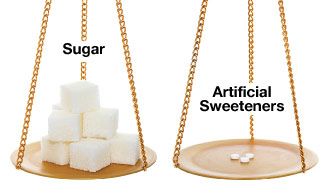The impact of artificial sweeteners on women’s kidney health

In today’s modern world, artificial sweeteners have become increasingly prevalent as sugar substitutes. These sugar alternatives are particularly popular among individuals who are conscious about their calorie intake and those who have various dietary restrictions. However, recent research suggests that excessive consumption of artificial sweeteners may have negative implications for women’s kidney health.
The Role of Artificial Sweeteners and Their Common Types
Artificial sweeteners are non-nutritive substances often used as alternatives to sugar due to their low or zero-calorie content. The most common types of artificial sweeteners include aspartame, sucralose, saccharin, acesulfame potassium, and neotame. These sweeteners are commonly found in diet sodas, sugar-free products, and even some processed foods marketed as “healthy” or “weight-friendly.”
The Dangers of Excessive Artificial Sweetener Consumption
While artificial sweeteners are considered safe for consumption in moderate quantities, excessive intake can potentially lead to negative effects on kidney health, especially in women. Research studies have found a correlation between high consumption of artificial sweeteners and an increased risk of developing kidney problems, including kidney stones, reduced kidney function, and urinary tract issues.
Mechanism of Artificial Sweeteners on Kidney Health
Artificial sweeteners can affect kidney health through various mechanisms. One significant factor is the way in which they alter the body’s metabolism and disrupt the delicate balance of sugar regulation. By providing a sweet taste without the associated calories, artificial sweeteners can confuse the body’s natural ability to regulate blood sugar levels, potentially leading to metabolic dysregulation.
Furthermore, excessive artificial sweetener consumption has been linked to an increased risk of obesity and metabolic syndrome, both of which are risk factors for kidney disease. These sweeteners may trigger cravings for high-calorie and sugary foods, contributing to weight gain and subsequent health issues.
Prevention and Moderation
While it’s essential to be mindful of the potential negative impact of artificial sweeteners on women‘s kidney health, it doesn’t mean completely avoiding them. Moderation and responsible consumption are key. It is recommended to limit intake to within acceptable daily intake levels established by regulatory authorities and to opt for natural sweeteners such as stevia or honey whenever possible.
The Importance of Seeking Professional Advice
If you have concerns about your kidney health or are unsure about your artificial sweetener consumption, it is vital to consult with a healthcare professional or a registered dietitian. They can provide personalized guidance based on your specific health needs and help you make informed decisions about your diet and overall well-being.
Conclusion
Artificial sweeteners offer a viable alternative to sugar for individuals looking to reduce caloric intake or manage specific dietary restrictions. However, excessive consumption of these sweeteners, particularly for women, may pose risks to kidney health. Maintaining a balanced and diversified diet, together with moderation in consuming artificial sweeteners, is crucial to preserve optimal kidney function and overall well-being.





